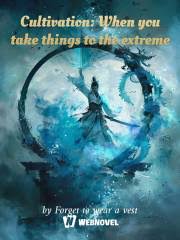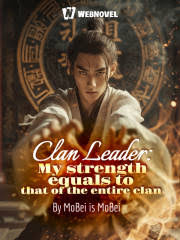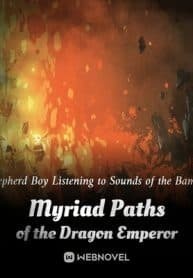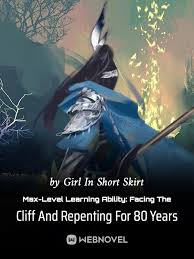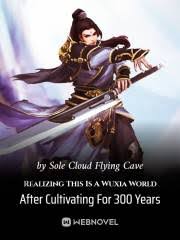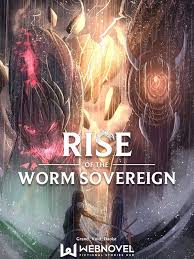The Story in 3 Sentences
Xu Yang begins as a powerless fisherman in a harsh cultivation world, surviving on scraps until he unlocks a mysterious golden ability that lets him refine any mundane action—eating, sleeping, breathing—into profound cultivation power through sheer persistence.
A pivotal shift occurs when he gains the power to project his soul into dream worlds, inhabiting the bodies of the recently deceased and accumulating skills, knowledge, and strength across lifetimes without aging in his original realm.
Driven by quiet resolve rather than grand declarations, he ascends from obscurity to become the legendary Ten Mile Sword God, reshaping entire worlds while wrestling with the cost of immortality, memory, and identity.
Why It Stands Out
1. The Mundane Made Mythic
Most xianxia novels glorify sword techniques or pill refining, but this story dares to treat sleeping, walking, and even breathing as paths to godhood—if done with obsessive consistency. The core mechanic transforms everyday acts into sacred rituals, making cultivation feel both intimate and infinite.
2. Dream-World Layering as Narrative Architecture
Rather than hopping between realms linearly, Xu Yang’s soul-journeys create a fractal narrative: each dream life operates under different rules—modern Earth, Taoist heavens, post-apocalyptic wastelands—yet all feed back into his central growth. This structure avoids repetition by constantly reinventing the rules of power.
3. Anti-System System
Despite early appearances of a “golden finger” system, the novel subverts expectations by revealing the interface as a manifestation of a lost divine self. The real cultivation isn’t about leveling up stats—it’s about recovering fragmented consciousness across lifetimes, turning the system trope into a metaphysical mystery.
Characters That Leave a Mark
There’s Xin Shisi – a reincarnated soul from the Central Region Divine Land whose cryptic presence hints at cosmic cycles of rebirth and forgotten pacts, challenging Xu Yang’s understanding of fate.
You’ll meet Meng Qi, who emerges as a pivotal figure tied to Xu Yang’s past life, her memories flickering like distant stars that guide him toward truths buried beneath layers of amnesia and divine exile.
The Flaws Fans Debate
The ending feels severely rushed, compressing what should have been thousands of chapters of resolution into fewer than ten, leaving major worldlines unresolved.
Translation quality is inconsistent, with entire sections of chapters missing or poorly rendered, forcing dedicated readers to seek Chinese raws for coherence.
The sudden shift of a major dream world into a literal computer game broke immersion for many fans, sparking backlash that reportedly influenced the author to abandon planned expansions.
Must-Experience Arcs
Ch. 1–80: Fisherman’s Resolve – Xu Yang struggles in a cutthroat coastal village, mastering foundational cultivation through eating and breathing while evading local gangs and low-tier sects; his quiet perseverance sets the tone for the entire saga.
Ch. 400–600: Taoist Dream and Heavenly Mechanics – In a world governed by celestial laws and ancient schools like Wandao, Xu Yang pioneers the “Heavenly Mechanics Method,” blending cultivation with proto-engineering, earning reverence as a living sage.
Ch. 1000–1213: The Golden Dao Fruit Reawakens – After regaining his identity as a fallen Golden Immortal, Xu Yang confronts the architects of his exile, reforges broken realms, and chooses whether to reclaim godhood or dissolve into the fabric of existence itself.
Killer Quotes
“No matter if it was the common myriad activities or the Hundred Arts of Cultivation, as long as one was persistent, they could reach the pinnacle of refinement.”
“A strong will turns to steel after a hundred refinings, yet under a woman’s tender care, it becomes soft as silk around her finger.”
“The whale couldn’t be raised in a fish tank. A dragon couldn’t be raised in a pig pen. Without money, everything else was useless.”
Cultural Impact
Readers coined the term “extreme mundane cultivation” to describe its unique power system, inspiring dozens of fanfics and spin-off concepts on forums like NovelUpdates and Reddit’s r/xianxia.
The “Ten Mile Sword God” title became a meme shorthand for overpowered yet understated protagonists who achieve godhood through boring, repetitive actions.
Despite translation issues, the novel maintained a cult following, with fans organizing raw-reading groups and unofficial glossaries to decode its intricate cultivation hierarchies and Taoist terminology.
Final Verdict
Start Here If You Want:
A cultivation story where power comes not from rare treasures or bloodlines, but from relentless, almost absurd dedication to ordinary acts.
A multilayered narrative that uses dream worlds not as escapes, but as crucibles for philosophical and technical evolution.
A slow-burn ascent where every gain feels earned, and the protagonist’s quiet intensity replaces typical xianxia bombast.
Study If You Love:
Narratives that explore identity through reincarnation and memory fragmentation, echoing themes from Zhuangzi’s butterfly dream.
Worldbuilding that integrates Taoist cosmology with speculative mechanics, treating cultivation as both spiritual discipline and systemic engineering.
Stories that critique the “system protagonist” trope by revealing the interface as a symptom of divine amnesia rather than a cheat tool.
Avoid If You Prefer:
Fast-paced action with constant combat; this novel luxuriates in introspection, training montages, and theoretical cultivation debates.
Emotionally expressive protagonists; Xu Yang remains stoic, driven by principle rather than passion, which some readers find cold.
Polished, complete translations; the English version suffers from omissions and inconsistencies that disrupt immersion, especially in late arcs.
